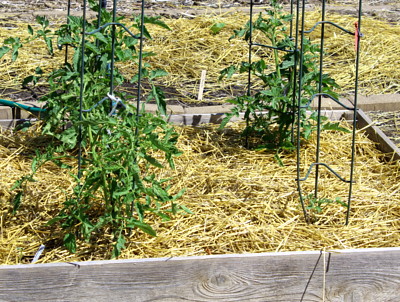Let Some Plants Stay and Remove Others
Remove the weeds now! If they are left to stay in the garden over the winter they will go to seed and dig deeper roots, making the weeding process next year twice as difficult! Do not compost tomato or pepper plants or green malformed fruits still on the branches, they are more likely to carry and transfer plant disease through the soil. It is a good idea to let the vegetable like cabbage, kale, broccoli, brussels sprouts, cauliflower and radishes to be left in the ground until early spring because these plants can act as pest lures.
Leave stalks standing in the flower garden. Local native plants and those with seeds and berries will attract birds to brighten up the winter landscape!
Mulching - Protect the soil!
Clean up the soil and add the debris and residue to a compost pile. Mix in with the compost, or shred the debris to aide in its decomposition process. Place the compost and debris close the soil, this helps in the decomposition and minimizes insect and disease pressure for next year. The compost is "soil microbe food" that adds needed nutrients to the ground. Beginning this process in the fall creates a rich top soil layer in the spring!
It's a great idea to add straw or hay on top to protect the soil from the elements of winter. Collect fall leaves and place at the base of plants, trees and shrubs!


